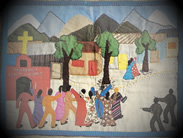 |
Julie Shayne, Ph.D. Gender, Women, and Sexuality Studies |
 |
|
|
||||||||||
|
They Used to Call Us Witches: Chilean Exiles, Culture, and Feminism, Lexington Books (2009) While conducting research in Chile, I became increasingly interested in exile. The Pinochet dictatorship forced over one million Chileans into exile in as many as 140 nations around the world. In a great majority of those countries exiles organized with local solidarity activists to denounce the dictatorship, and by some estimates were in part responsible for Pinochet's ultimate removal from power. My second book, They Used to Call Us Witches: Chilean Exiles, Culture, and Feminism, is a gendered social history of the Canadian manifestation of this transnational movement via a case study analysis of Vancouver, British Columbia. In They Used to Call Us Witches I analyze and document the anti-Pinochet solidarity movement organized by Chilean exiles in Canada during the 1970s and 80s and the feminist movement that followed in the 1990s. Within this historical framework I address several issues: 1) the roles and experiences of Chilean women in the solidarity movement, 2) the organizational and strategic place of culture and emotions in the movement, and 3) the significance of feminism and feminist activism to Chilean women exiles, especially in the post-Pinochet period. They Used to Call Us Witches is based on data collected through interviews and focus group discussions; content analysis of primary documents from and media coverage about the solidarity and feminist movements, participant observation with a Vancouver based email list, and secondary sources. Additionally, the book includes data collected from my research in Chile in 1998-1999 where I conducted interviews and did archival research about the anti-Pinochet and feminist movements within Chile during the dictatorship. They Used to Call Us Witches has also been received favorably. In March 2011 it was awarded the Pacific Sociological Association's Distinguished Scholarship Award. It has been reviewed by Contemporary Sociology, AContracorriente, Gender & Society, and Latin American Perspectives.
|
|
||||||||